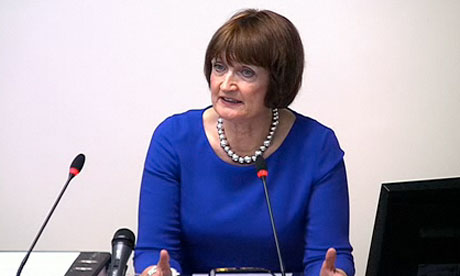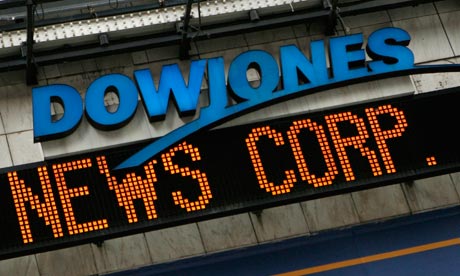STATE REGULATION OF THE PRESS BY THE BACK DOOR?
THE ROLE AND INFLUENCE OF E.U. LAW/DIRECTIVES ON UK MEDIA REGULATION
We've discussed how OfCom broods over its desire to bring the BBC under its umbrella, a fate the BBC bitterly resists.
Well now a new turf war is breaking out, between the upstart newcomer Atvod and the old mongrel that is the PCC. The PCC acted to bring papers' web content under its remit back in 2007, but Atvod (The Association for television on demand) claims IT has authority over this area of media content and has threatened to fine papers that refuse to recognise it!
This story provides another link into this debate around OfCom as a super-regulator set up partially in recognition of the impact and consequences of convergence; as we've noted, if the principle holds true, shouldn't ALL media come under ONE regulator's roof? [we've also noted the counter-arguments lets not forget!]
If you read closely the articles below there is what may seem as a minor, but actually very significant (and useful for you) point buried in there: Europe, the EU, is playing a key role in shaping the UK's media regulation.
The catalyst for change was the audiovisual media services (AVMS) directive, implemented in the UK by the audiovisual media services regulations 2009 and 2010.
The European directive's purpose is to create a level playing field for broadcasters and websites offering programmes that compete with TV for audiences.
Among other things, it loosens restrictions on advertising and product placement and imposes basic editorial standards to protect children from harmful material and to prohibit hate speech.
It would be useful if you could specifically name the AVMS directive in your exam!
Here's how The Drum (an excellent site for news on media regulation)
reported the story:
The internet may seem a lawless fiefdom where anything goes but a fiercely fought battle over the rights to regulate audiovisual content threatens to re-shape the future direction of digital content.
A newly established regulatory body, The Association for television on demand (Atvod), is leading threats to upend long cherished freedoms enjoyed by the press in their right to self regulation under the auspices of the Press Complaints Commission by challenging the rights of newspapers to exist outwith its remit.
In a letter to publishers the body has bared its teeth by identifying “television-like” content currently being displayed on newspapers without regulation was a loophole that it, alongside co-regulator Ofcom, wished to see closed.
The move comes amidst a flurry of EU directives geared toward creation of a level playing field between broadcasters and websites, a process which could see identified papers forced to stump up a £2,900 fee.
Distinction will be made however between video content that is integral to a websites content and those which are brought together in one place on the site.
The PCC are resisting the measure, pointing out that their remit was expanded in 2007 to cover the content that Atvod now wishes to get its mitts on.
If Atvod is successful in its bid it will be the first time that the UK press, which cherishes its self-regulatory status - has been brought under legislative control.
The Guardian also covered this story, in further detail:
Why video may kill self-regulation of the press
A new regulatory body, Atvod, has newspapers in its sights but its 'land grab' is worrying the Press Complaints Commission
 |
| BBC iPlayer is a prime candidate for regulation, but Atvod claims newspaper websites also fall within its ambit. Photograph: Alamy |
Who regulates the internet? If you think the answer is "nobody", think again. There is a land grab going on and the web turf being fought over is audiovisual content.
Despite the fact that the UK press is unlicensed, and self-regulated under the auspices of the Press Complaints Commission (PCC), the Association for Television on Demand (Atvod) has written to newspapers, including the Guardian and the Independent, claiming that they fall within its regulatory ambit.
Atvod, formerly a limp and low-profile self-regulatory body, was last year born again as co-regulator (with Ofcom) of online audiovisual content that is "television-like".
Newspapers and the PCC are likely to resist, but if Atvod wins the argument the UK press will, for the first time, be brought under a regulator's control. If not quite regulation by ambush, it may qualify as regulation by stealth.
How has this come to pass? While the internet has never been a law-free zone, websites have, until recently, escaped regulation. The catalyst for change was the audiovisual media services (AVMS) directive, implemented in the UK by the audiovisual media services regulations 2009 and 2010.
The European directive's purpose is to create a level playing field for broadcasters and websites offering programmes that compete with TV for audiences.
Among other things, it loosens restrictions on advertising and product placement and imposes basic editorial standards to protect children from harmful material and to prohibit hate speech.
The regulations bring web content into Ofcom's sphere for the first time and allow the independent state regulator to delegate some of its powers – hence its appointment of Atvod as co-regulator last year.
But Ofcom remains the backstop regulator and it is the appeal body for Atvod's decisions about which websites must register.
Newspapers identified by Atvod as within the scope of the AVMS regulations that fail to notify and pay Atvod's fee (currently £2,900) could be fined up to £250,000 by Ofcom and face suspension of their video offerings.
Under the regulations, a website is an "on demand programme service" if its "principal purpose" is to offer content that is "television-like" and it competes for the same audience as TV – so there is plenty of room for argument about whether newspapers are covered at all.
The press is also likely to quarrel with Atvod's salami-slicing approach to newspaper websites in order to bring them within reach.
Ofcom and Atvod accept that where video goes with text, or is "integral and ancillary" to a website's broader offering, it may not be caught, but what is being suggested is that keeping those videos together in one place on a newspaper's website will lead to regulation.
The PCC, understandably, does not welcome Atvod's encroachment on its territory: "The remit of the PCC was expanded in 2007 to include audiovisual material appearing on newspaper and magazine websites," its director, Stephen Abell, said.
"This move – which was welcomed by the DCMS [Department for Culture, Media and Sport] select committee at the time – means that the PCC is the relevant body to consider complaints about audiovisual content appearing on such sites.
We have considered numerous complaints, framed within the terms of the code enforced by the PCC, since then."
The PCC is right to be concerned. It is only a skip and a hop from regulation of bits of newspaper websites to regulation of the whole newspaper industry – something that successive governments have shied away from.Recent House of Commons select committees in 2007 and 2010 concluded that self-regulation remains the preferred option, which makes Atvod's attempt to cast its net over the press even more disconcerting.
The primary candidates for AVMS regulation are providers of terrestrial, digital, cable and satellite TV, for example BBC iPlayer, Channel 4's 4OD and others offering video on demand such as BT Vision, Virgin Media, Discovery Channel, and various adult channels.
Atvod's claims to regulate parts of the press are unexpected, not least because the all-important recital 21 in the AVMS directive expressly excludes electronic versions of newspapers and magazines from its scope and Ofcom's consultation paper, in 2009, did not include a single newspaper in the list of services likely to be covered by regulations.
Ofcom originally estimated that at least 150 organisations would be within scope, but that figure, according to the co-regulator's consultation paper on fees last month, is now thought to be nearer to 130 and Atvod says on its website that only 100 services have registered.
Money must be tight, but the problem of funding Atvod's regulatory activities is not a good enough reason to regulate the press by the back door.
What is required now is proper consideration of whether the directive and regulations are being interpreted too widely and in a way that is contrary to public policy.
Siobhain Butterworth currently works with media organisations including the Guardian and the Independent as a locum lawyer. The opinions expressed here are her own.


